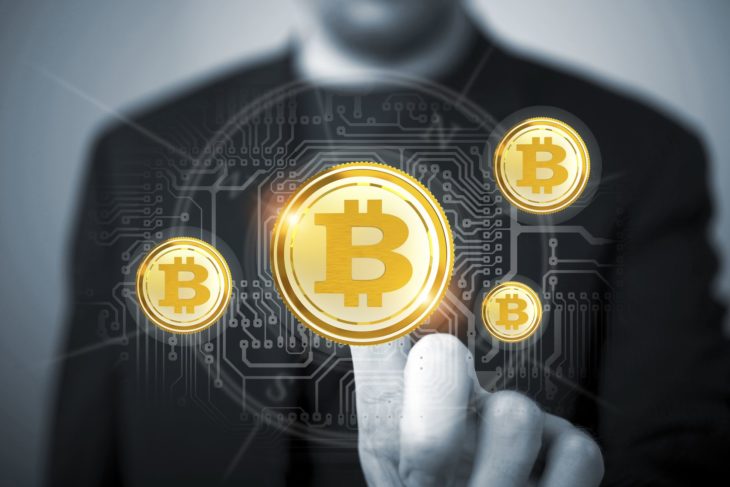Once cryptocurrency gained popularity, many people opted to invest and trade in Bitcoin and other cryptos. The reasons for the popularity of digital currency are stories about the people who managed to double or triple their investment. Unlike many different stories going around the web, the news about cryptocurrency and massive earnings are trustworthy. This is why people continue to flock into the crypto nest, and they would continue to do so as long there are people like Eddy Zillan. He made millions from a few thousand dollars invested into cryptocurrencies.
During 2018, more than 17 million people joined the crypto party. They were attracted by the success stories of other people whose lives were changed by cryptocurrencies. Today, we have over a thousand cryptocurrencies and even more ways to earn money off them. But, it’s not all great as the end of June as Harry Styles would put it. More than once, exchanges and individuals that deal with cryptocurrencies fell prey to security breaches that happen even today. So, you don’t only need to earn your crypto; you also need to know how to protect it. In this article, we’ll discuss four security tips every cryptocurrency trader should know. Read these, and learn how to stay, safe, earn, and keep your money in your wallet.
Contents
Don’t Store All of Your Money in an Exchange

Source: independent
While exchanges are relatively safe, there were cases in the past when their defenses were breached by hackers. Because of the security issues they’ve had, many people lost their cryptocurrency, while the exchanges also suffered massive losses. So, as we said, exchanges guarantee the safety of your tokens, but you can never be too safe. To avoid your account being compromised and assets irreversibly lost, you should never keep all of your coins in one exchange. What you should do is to stash it all away in a private wallet.
This option is what most people do this day, as there are many options fro which you can choose. At your disposal, you have cold wallets, mobile wallets, hot wallets, and paper wallets. The best option to go with, as most crypto traders would tell you, is the cold wallet. This one also goes by the name hardware option due to its SE Chip (Security Chip), thanks to which you can keep the key to the wallet stored in an offline device. The fact that you’ll keep it offline is what would keep it safe from a security breach. It would remain offline even when the device is connected to the Internet, thanks to a microchip installed. Because of this little trick, it won’t catch any malware even if your computer has one.
Always Check Your Account Activity

Source: Admiral Markets
Once you start using cryptocurrency, you’ll create access to various accounts, devices, programs, and apps, which would all be protected by multiple means. But, the means of protection at your disposal should start with you. Every now and then, it would be best if you did a checkup on all of your activity, log-ins, passwords, and similar issues. This is a large amount of information, all of which is tied to your personal information. If this is not something you do on a regular basis, you are doing it wrong and should change your habits immediately.
The first move you should make is to go through your emails and see which crypto platforms you are using. This is data you don’t want to save on your devices connected to the Internet. The best thing to do would be to old fashionably write it on a piece of paper and store it somewhere safe. If you have more accounts, it would be best to keep a track of them, including log-in data, and dates and times when you accessed them. This is the easiest way to notice if something fishy is going on.
Don’t Fall for a Phishing Email

Source: TodayTrader
Phishing emails have been around as long as the Internet has been. They evolved together, and today hackers know their way around securities, and more people fall victim to phishing than ever. So, after you heard this from us, you have one reason more to be extra careful with your emails – especially if they contain an external link. These days, the malware emails you receive are created in a manner that they mimic proper companies’ sand enterprises. There would be times you’ll find it hard to tell one from another. Early detection is the key.
Before you access the email and god forbid, click on the link, make sure that the domain in it is legit. For example, you can easily switch legitimate website cryptotips.eu with cryptotips.com that might or might not be a part of a phishing scheme. Furthermore, the one thing you need to be wary of is the emails that ask you personal information. If your data is requested from an organization, contact them directly, and do not answer the email. Every piece of email that looks fishy to you should be avoided as there is a chance it does indeed contains malware. IN the end, whatever you do, do not eve send you crypto via email. There are proper channels to do this, and you should stick to them.
Use 2-Factor Authentication

Source: TodayTrader
Even if your account has a find basic protection, you should also add 2-factor authentication. It serves as an additional layer of protection for your cryptocurrency. The one we recommend is the SMS 2FA, as it is the one that can’t be intercepted. Those who are deep into the world of the crypto claim that your choice should be Google Authenticator App. This app can be used offline, and it is local to your device, which is two highly touting traits.
Furthermore, if you are relying on third-party software for your trades, you should restrict your API key. By doing this, it would work only on designate IP addresses such is yours. If you do this, almost no one would be able to access your account even if they got ahold of your security key.
